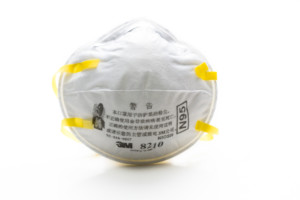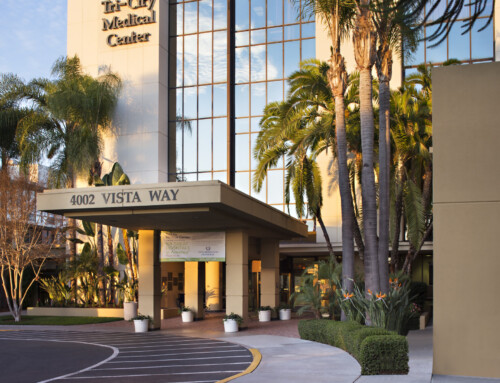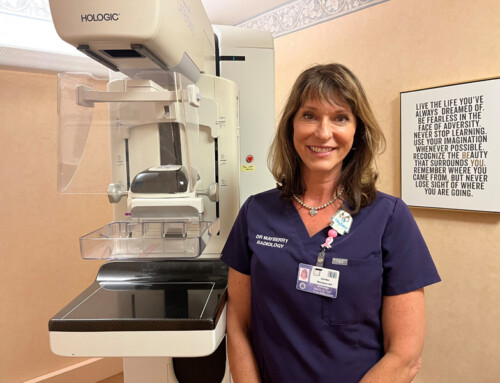Tri-City Medical Center will continue to remain open during this difficult time and encourages all members of our community to demonstrate the highest level of caution. Emergency situations can often lead to an increased sense of panic and lack of attention to detail. Avoid leaving home if possible. If it is not possible for you to remain in your home, note and avoid road closures in your area (available at the links below), drive slowly and proceed into intersections with caution, look & listen for fire trucks or ambulances which may be trying to get by, leave your windows rolled up to limit exposure to polluted air.
Visit sites below for updated fire movement information:
http://www.calfire.ca.gov/
http://www.sdcountyemergency.com/
https://www.10news.com/news/interactive-map-lilac-fire-rips-through-north-san-diego-county
https://www.nbcsandiego.com/news/local/Lilac-Fire-Evacuations-and-Closures-462661943.html
Smoke Inhalation Precautions

N95 masks which can assist with blocking fire particulates can be purchased at your local hardware store.
Please be aware that the air quality due to nearby fires is extremely poor. Wildfire smoke is a mixture of gases and fine particles from burnt vegetation, building materials, and other materials. Wildfire smoke can make anyone sick, and with enough smoke in the air, even those who would otherwise be considered healthy can experience immediate health effects. If you are concerned about your health due to wildfire smoke inhalation and are experiencing any of the below effects please visit Tri-City Medical Center immediately. Our Emergency Room staff is standing by and ready to care for you.
WILDFIRE SMOKE INHALATION CAN CAUSE:
- Coughing
- Trouble breathing normally
- Stinging eyes
- A scratchy throat
- Runny nose
- Irritated sinuses
- Wheezing and shortness of breath
- Chest pain
- Headaches
- An asthma attack
- Tiredness
- Fast heartbeat
Smoke can hurt your eyes, irritate your respiratory system, and worsen chronic heart and lung diseases. Older adults, pregnant women, children, and people with preexisting respiratory and heart conditions may be more likely to get sick if they breathe in wildfire smoke.
Tips for Protecting Yourself from Wildfire Smoke
If possible, limit your exposure to smoke. Here are eight tips to help you protect your health:
- Pay attention to local air quality reports and the US Air Quality Index . When a wildfire occurs in your area, watch for news or health warnings about smoke. Pay attention to public health messages and take extra safety measures such as avoiding spending time outdoors.
- Pay attention to visibility guides if they are available. Although not every community measures the amount of particles in the air, some communities in the western United States have guidelines to help people estimate air quality based on how far they can see.
- Stay indoors and keep your indoor air as clean as possible. Keep windows and doors closed unless it is very hot outside. Run an air conditioner if you have one, but keep the fresh-air intake closed and the filter clean to prevent outdoor smoke from getting inside. Seek shelter elsewhere if you do not have an air conditioner and it is too warm to stay inside with the windows closed.
- Use an air filter. Use a freestanding indoor air filter with particle removal to help protect people with heart disease, asthma or other respiratory conditions and the elderly and children from the effects of wildfire smoke.
- Do not add to indoor pollution. When smoke levels are high, do not use anything that burns, such as candles and fireplaces. Do not vacuum, because vacuuming stirs up particles already inside your home. Do not smoke tobacco or other products, because smoking puts even more pollution into the air.
- Follow your doctor’s advice about medicines and about your respiratory management plan if you have asthma or another lung disease or cardiovascular disease. Call your doctor if your symptoms worsen.
- Do not rely on dust masks for protection. Paper “comfort” or “dust” masks commonly found at hardware stores trap large particles, such as sawdust. These masks will not protect your lungs from smoke. An “N95” mask, properly worn, will offer some protection. If you decide to keep a mask on hand, see the Respirator Fact Sheet provided by CDC’s National Institute for Occupational Safety and Health.
Click here for a helpful checklist PDF from Calfire.com for what to do when returning home after a wildfire.
Source:
https://www.cdc.gov/disasters/wildfires/smoke.html





